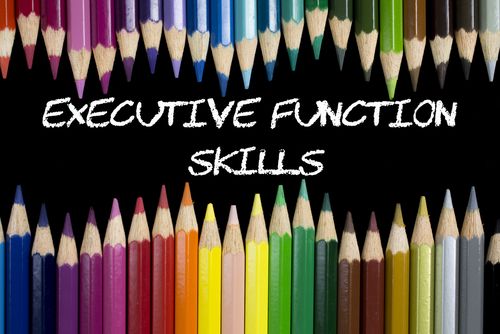 Executive function refers to the many ways the brain directs impulses. When working well, it helps you manage time and tasks, organize your space, and maintain focus and memory. These functions are often essential for daily life.
Executive function refers to the many ways the brain directs impulses. When working well, it helps you manage time and tasks, organize your space, and maintain focus and memory. These functions are often essential for daily life.
Many people struggle with executive function skills. If they grow up around people who don't understand the issue, they may get labeled lazy or scatterbrained at an early age and find it hard to overcome that stigma. Even worse, they may become resigned to difficulty and believe that there's nothing they can do about it. The truth is that there are ways to improve executive function, and these tips can work for people of every age.
Understand Your Unique Diagnosis
Brain fog, lack of focus, and jumbled thoughts can be symptoms of many different issues, such as ADHD, anxiety, or depression. They may also be stress responses, particularly for neurodivergent or highly sensitive people. Executive functioning skills fall within three main areas:
- Self-control
- Working memory
- Adaptability
Talk to a professional to discover exactly what's going on with you or your child. Your primary care physician can probably refer you to an appropriate therapist. Alternatively, there are also online options for those who prefer to talk to someone within the privacy of their own home. Finding someone to guide your progress can be empowering.
Change Your Approach to Tasks
If you have experienced executive function challenges for a while, you are probably often given advice on how to improve. The problem is that even following good advice is difficult when your brain works in a different way than the minds of the people giving it. What seems easy for them is the very thing that trips you up. For example, buying a planner may not really help you, because even remembering to use it is yet another executive function skill that doesn't come without practice.
These challenges typically make it harder to remember what you need to do, but the good news is that there are probably tools you already have in place to help you. Many people start by changing their initial approach to tasks. When they are given an assignment or an appointment, they stop and set up reminders. If you check your phone a lot, set up an alert to remind you of your task. If you are sitting at a desk several hours a day, consider using a whiteboard to jot down things you don't want to forget. It may also help to break tasks into smaller steps so that you are less likely to feel overwhelmed when you get reminders.
Turn Distractions Into Rewards
A common trait of people with executive function issues is the difficulty in focusing on just one thing at a time. Their minds race with to-do lists, conversations, and general curiosity, so it can be hard to focus. They may be especially prone to frequent distraction, and getting rid of the things that steal their attention may seem like an impossible task.
Rather than trying to get rid of a distraction, consider turning it into a future reward. That article you want to read or show you want to watch isn't necessarily bad; it just has to wait until you finish a particular task. By using it as a reward for doing so, you can satisfy the need to complete what you're working without feeling like you're missing out on something else.
Learning to overcome executive function challenges takes more effort for some people than for others. With the help of a qualified therapist, however, you can address the issues that are most pressing, improving both your overall function and your confidence.